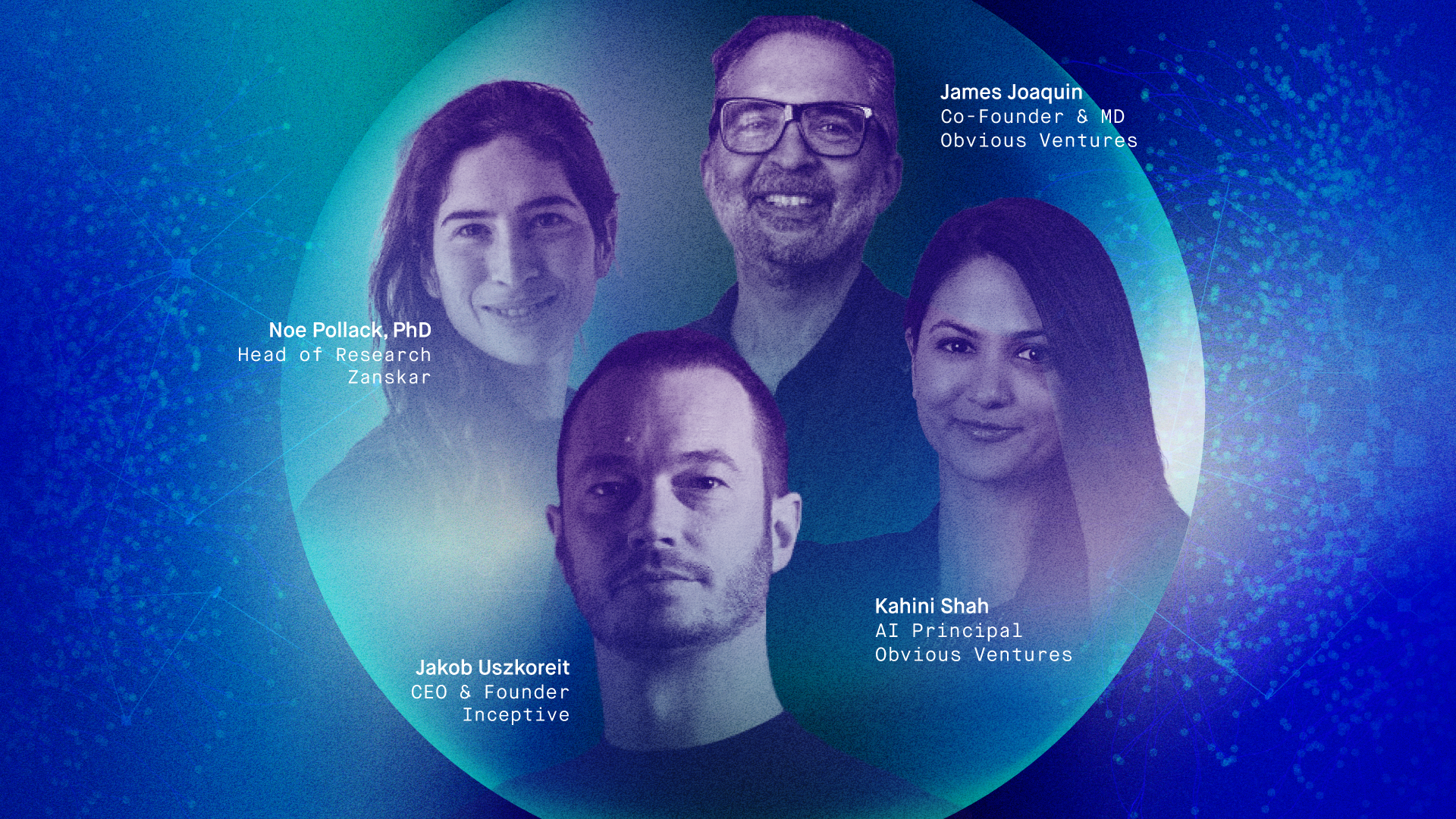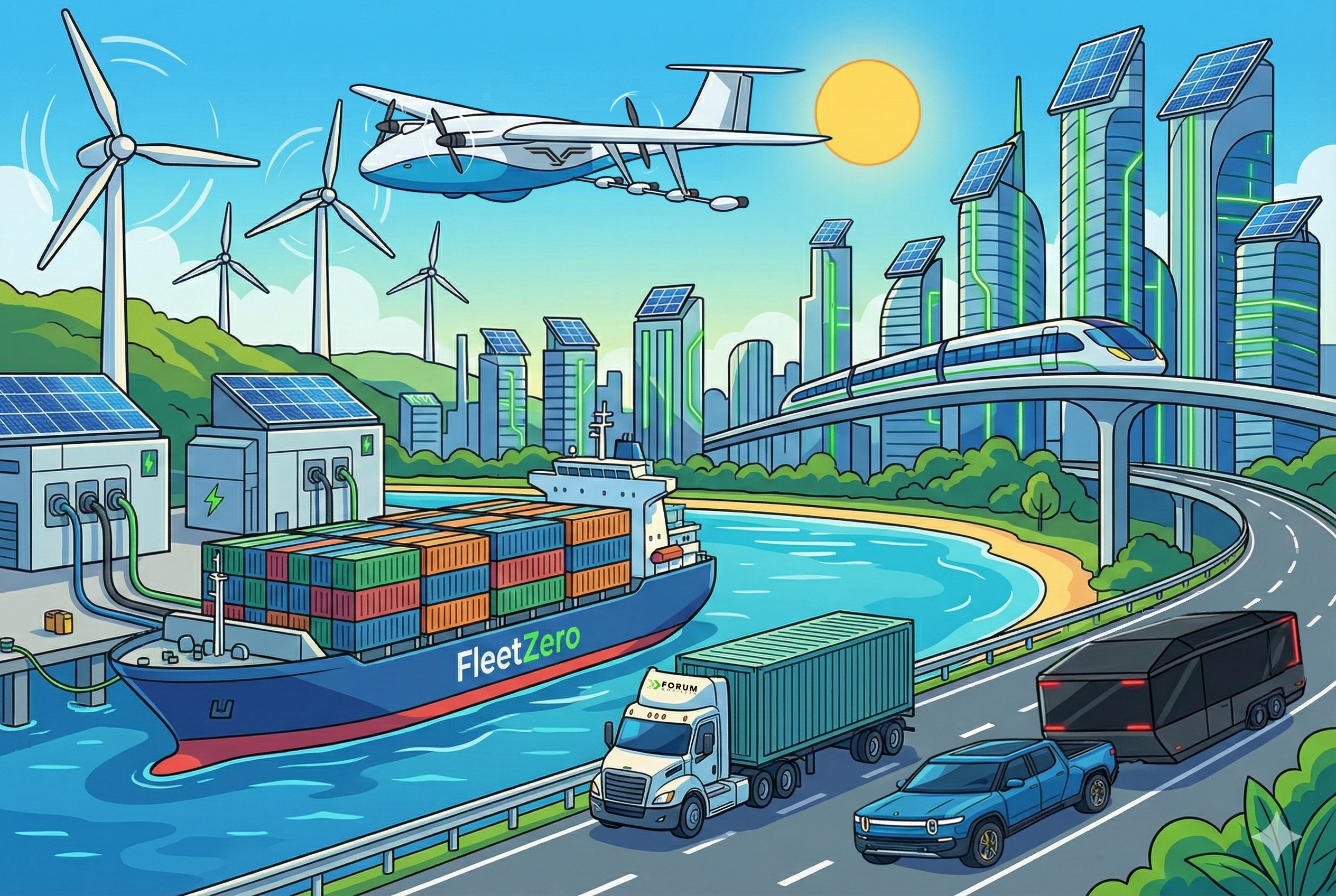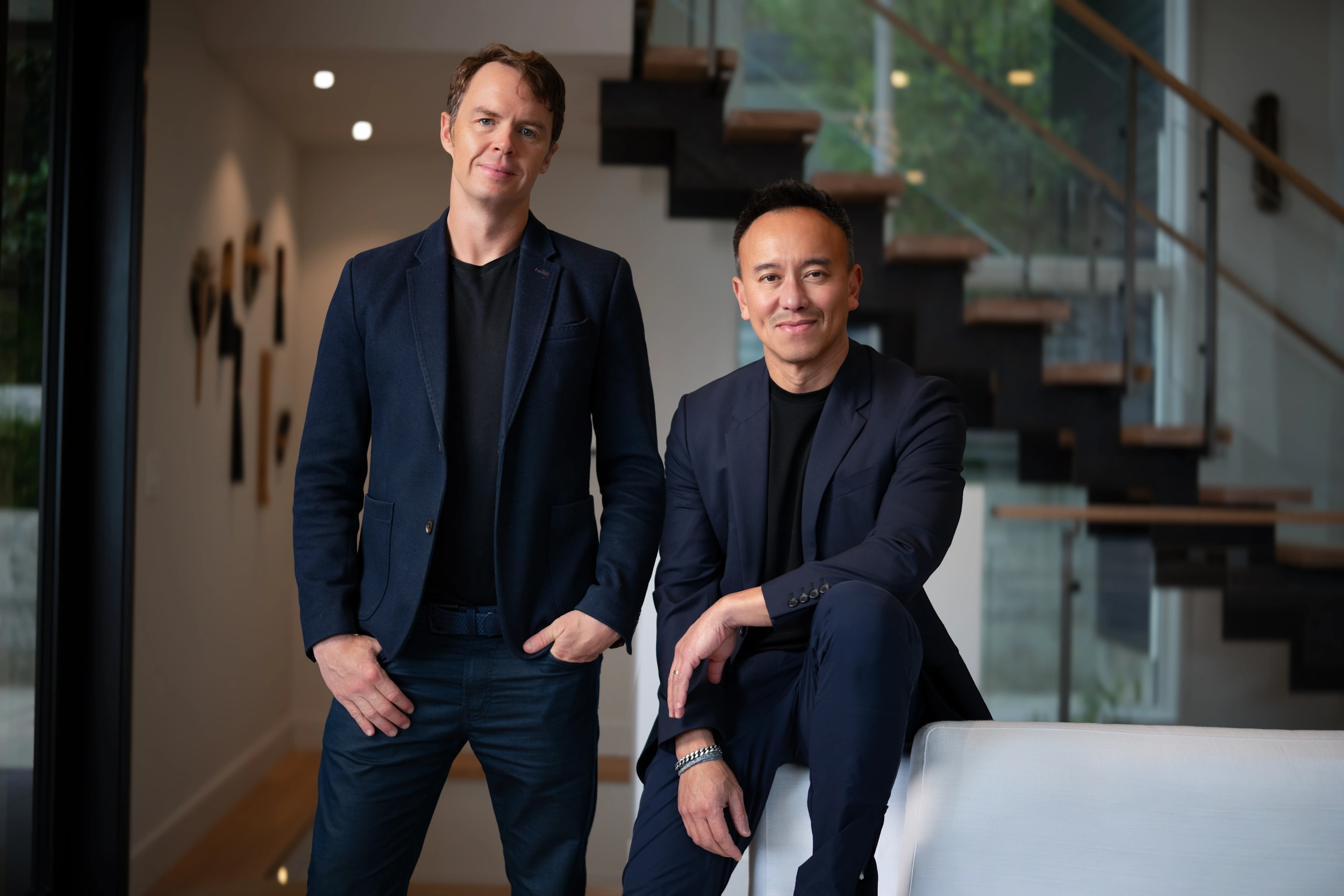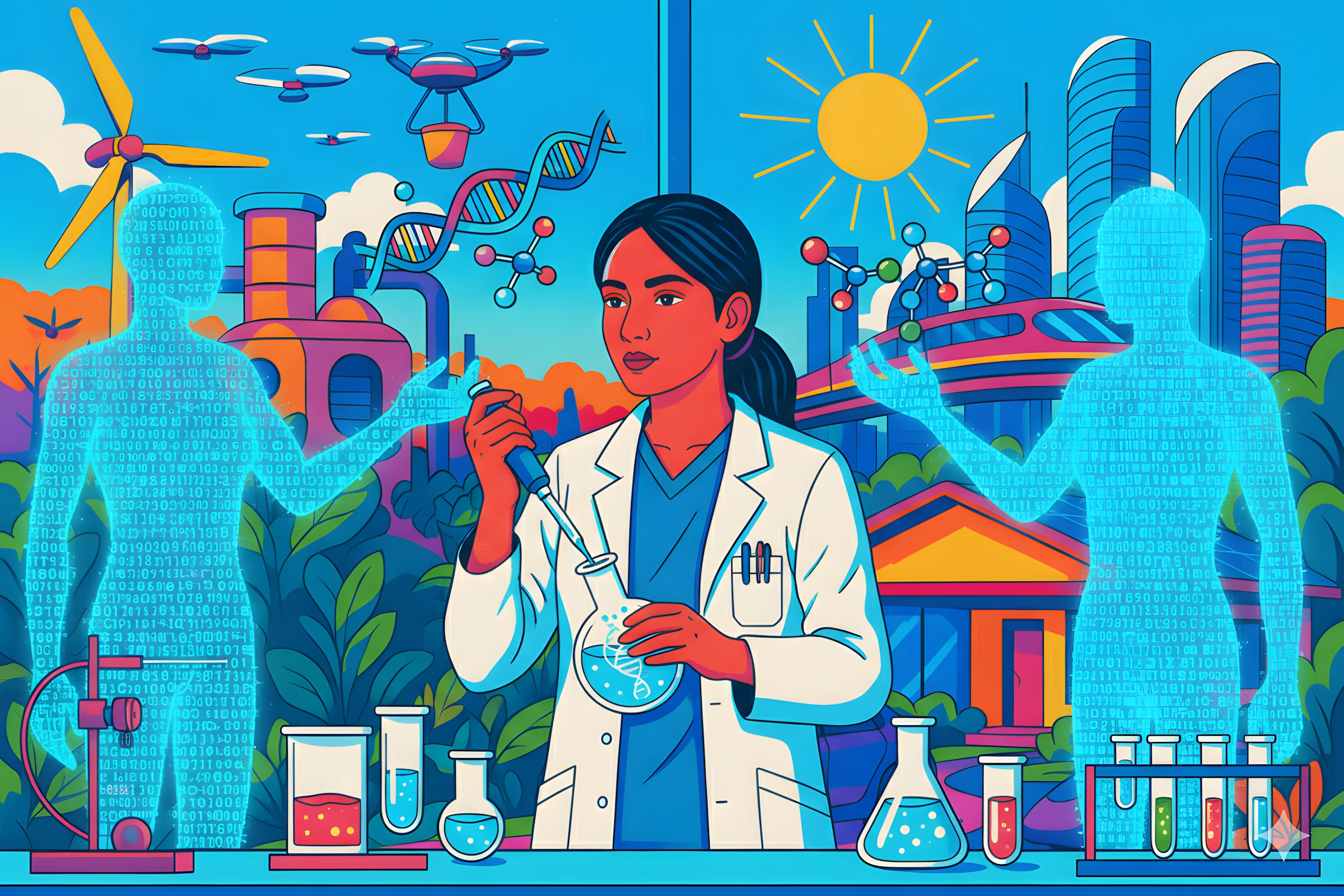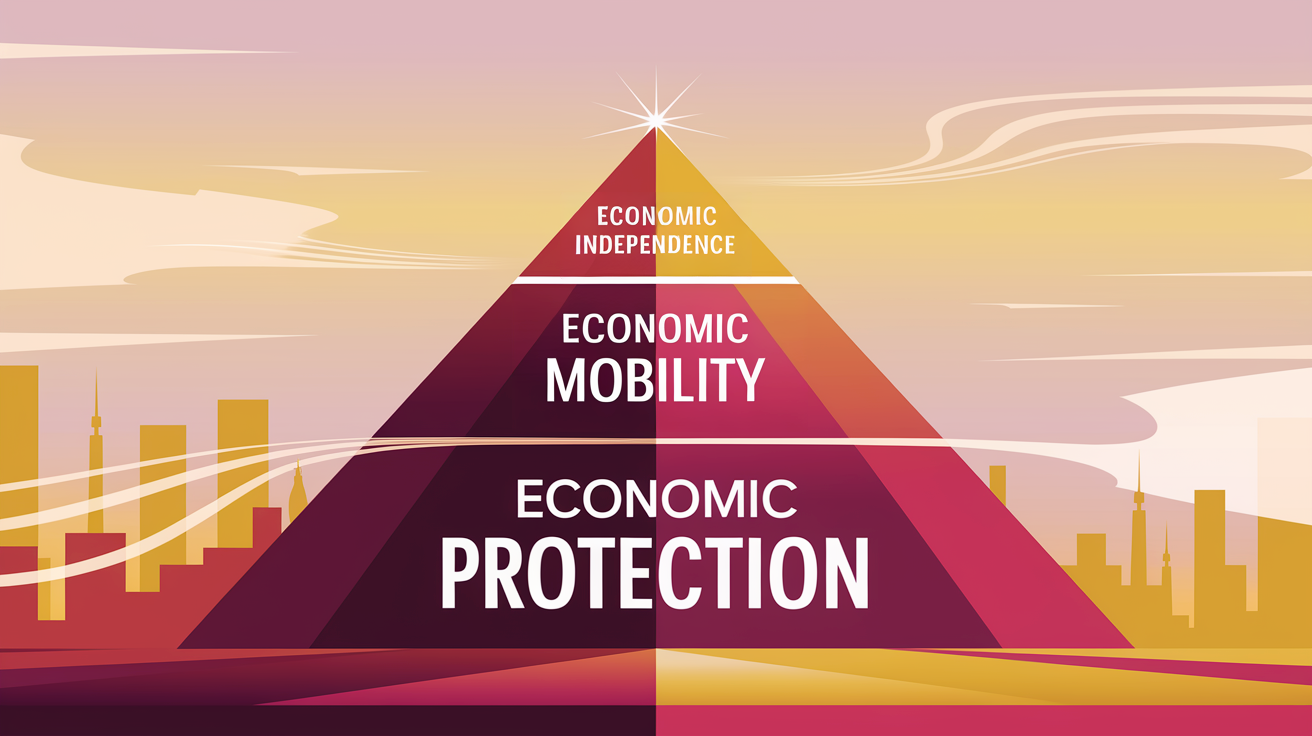Economic Health
Ushering in the AI Era of Scientific Breakthroughs
At Obvious Ventures, we see generative science as the next big wave in AI innovation.
We’re all familiar with the revolutionary capabilities of large language models and generative AI, and those large language models are trained on the Internet. Generative science is about building large science models. AI trained on the physical sciences, like biology, chemistry, geology, and physics. This is the most world-positive application of artificial intelligence, one that can really move humanity forward.
I recently sat down with three brilliant minds to discuss the possibilities of generative science. Joining me in conversation were Noe Pollack, PhD, head of research at Zanskar, which is using AI to discover the best sites to produce geothermal energy, Jakob Uszkoreit, one of the world’s top AI research scientists and cofounder of the biological software company Inceptive, and Kahini Shah, from Obvious, who leads our AI investing efforts across healthcare systems and robotics.
Our conversation was wide-ranging, and we shared how AI is unearthing renewable energy sources and new drug treatments and rewiring every field of science.
Here are some highlights:
How are you using generative science to transform or invest in your respective fields of climate, biology, and healthcare?
Noe Pollack, PhD, Head of Research, Zanskar:
“There is enough heat beneath the ground to basically power all the earth’s needs. The challenge is to find locations where this heat is closer to the surface, and finding these locations is really difficult because we cannot see the ground. So we are creating AI models that will give us a kind of treasure map that indicates for us where to drill.”
Jakob Uszkoreit, Co-founder and CEO, Inceptive:
“We’re actually looking at a biological macromolecule family that, without exaggeration, is able to save the world. Inceptive is really the first biological software company. That’s where generative science enters the picture. It literally is the first time that we have a tool at our disposal in the shape of generative science, of deep learning, large, deep learning models trained, pre-trained, at massive scale on observations of life.”
Kahini Shah, AI Principal, Obvious Ventures: “Data has the power to switch health care from sick care to well or preventative care. I’m really excited about the potential of AI to both increase accuracy, but then also recommend what treatment is right after the diagnosis is made. And AI has so many opportunities for efficiency. Overall, I’m just really excited about the potential AI has to impact patient outcomes, improve them, and reduce costs for our system.”
Over the next five to ten years, how can generative science solve the unsolvable?
Noe Pollack, Zanksar: “I think this research that you know that we’re doing right now at Zanskar for geothermal, a lot of other people are doing that for a large suite of other physical spaces. I think this will pay off and in five years, we’re going to see both in our field and in other physical fields, a lot of the impact of the big compute, big data, and complexity of models going much, much higher than previously. So I think this will change that AI space.”
Jakob Uszkoreit, Inceptive: “For the entirety of natural sciences, the opportunity is twofold. If you now start approximating some of the least computationally tractable basic physics computations in these overall approaches, you actually very quickly get much more accurate models. Human minds, or the hive mind of large teams of scientists, just aren’t fast enough. Basically, generative science provides the glue between these two different things. And so I feel there’s just a long list of really world-changing problems where progress will be massively enabled by using generative science in the middle of these two.”
Kahini Shah, Obvious: Robotics. I think ChatGPT has really opened up our imagination to what is possible powered by the transformers. What it’s doing is training on vast quantities of text data and predicting the next word, we could apply a similar concept here to robotics and train on vast amounts of vision, sensor, and other data to predict the next action a robot could make and build a robotic brain. Robotics really has a lot of opportunities in our day-to-day lives to really move humanity forward for the better.”
How do we accelerate breakthroughs with generative science in a way that’s safe and responsible? How are you thinking about the safety and ethics of what you’re building?
Kahini Shah, Obvious: “Earlier this year, we published a market map on AI Ethics that serves not only as an investment thesis but as a guiding principle in making investment decisions. When we invest in companies, we ask questions like, where do you get the training data from? How do you test and correct for bias? How do you do red teaming? And it’s also driving where we invest. Data centers now have a similar carbon footprint to aviation. That need is only growing as we train more of these models and we continue to invest in new sources of energy. So Zanskar is a portfolio company of ours, which is tapping into geothermal energy. And we think there’s a lot more work to be done across all of these different areas and AI ethics.”
Jakob Uszkoreit, Inceptive: We’re relying on the existing underpinnings of medicine—keeping medicine efficacious and safe—in order to prevent some of the otherwise inherent safety issues that come with designing synthetic molecules that are ultimately injected into patients. When it comes to ethics and dual-use by potentially malicious actors, we fundamentally believe our only way of guarding ourselves against such uses is to develop that technology as fast as possible. We’re not going to be able to suppress the development of similar technologies elsewhere. Ultimately, our only way to defend ourselves against what they undoubtedly will develop is to be faster in this race.”
When will we see real breakthroughs powered by generative science, or are there some real breakthroughs that have already happened?
Jakob Uszkoreit, Inceptive: “I believe we will find molecules designed almost entirely by generative science in this decade administered to patients at some scale. I think it’s basically guaranteed to happen. Will that go all the way to approved drugs? Likely, I would say, pretty high probability.”
Kahini Shah, Obvious: “With robotics, the technology is here today. What’s happening now is making them more robust and production-ready and just thinking through everything that it takes to actually bring a system into production. I’m optimistic. What we’ve seen with AI in the past couple of years is really exponential growth and if we stay on this pace and rate of change, I think it could even be faster than we think.”
Obvious Ideas
